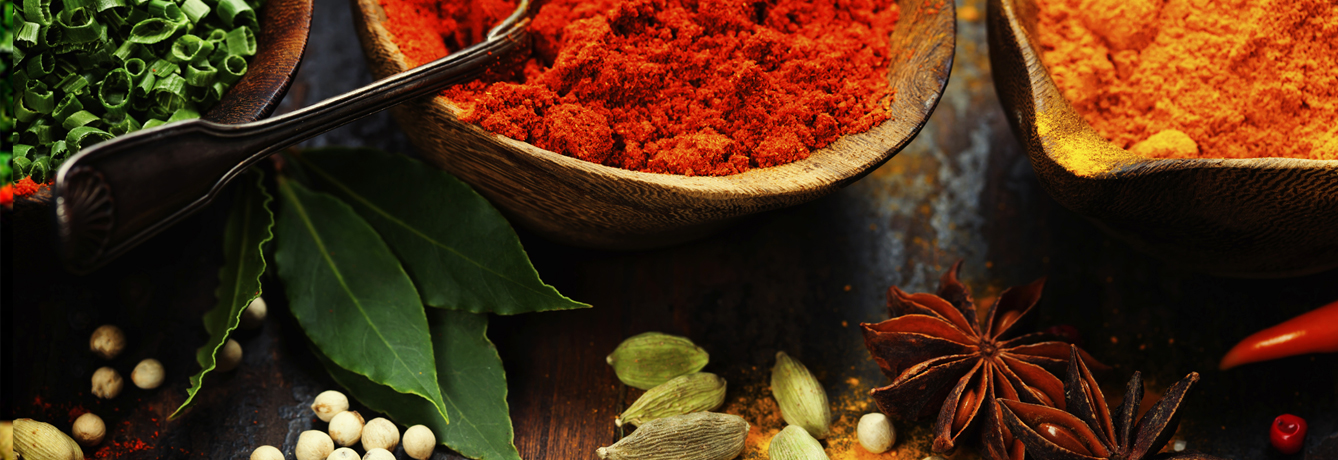Protect your heart by flavoring food? It’s not too delicious to be true. A recent report from Nutrition Today cites several studies exploring the health benefits of common herbs and spices most likely already in your kitchen. Spices and herbs not only add calorie- and sodium-free flavor to recipes, but pack potent antioxidants that may improve risk factors associated with cardiovascular disease.
In one small study, researchers tested the effect of a high-antioxidant spice blend on post-meal measures of metabolism and antioxidant capacity. Six healthy, overweight men were fed a 1,200 calorie meal on two separate occasions. The control meal consisted of a coconut chicken and white rice dish, cheese bread, and a dessert biscuit. For the test meal, researchers added a high dose of spices to the same items to create chicken curry, Italian herb cheese bread, and cinnamon biscuit. After each meal researchers analyzed participant blood samples. Researchers found the addition of spices resulted in 21% lower insulin levels, 31% lower triglyceride levels, and 13% higher antioxidant levels compared with levels after the control meal. Though the dose was high, spices used included black pepper, cinnamon, cloves, garlic powder, ginger, oregano, paprika, rosemary, and turmeric, all common flavorings likely stashed on your spice rack.
Different studies have focused solely on cinnamon. Though results have been mixed, one study found the addition of just 1, 3, or 6 grams of cinnamon per day – about 0.5 to 2.5 teaspoons – for 40 days resulted in a 7% to 30% decrease in total cholesterol, LDL cholesterol, and triglyceride levels in adults with type 2 diabetes. Other work has looked at just garlic. A meta-analysis of 39 clinical trials concluded raw garlic, garlic powder, garlic oil, and aged garlic extract might be effective in lowering total cholesterol by about 8%, which represents a 38% drop in risk of coronary events like heart attack and stroke.
More research is needed before any definite conclusions can be drawn, but the research suggests common spices and herbs might reduce inflammation and improve blood factors linked with heart disease. Not only do spices and herbs pack heart-promoting power, they’re relatively common and affordable, and offer bold flavor without adding calories. Sprinkle cinnamon into oatmeal, grind fresh pepper onto salads, and use oregano or rosemary to flavor poultry and fish. Take advantage of minced garlic and black pepper in our Mediterranean Bruschetta. The research might be limited, but it’s a delicious “maybe” we’re willing to bite into.
Published January 1, 2015



